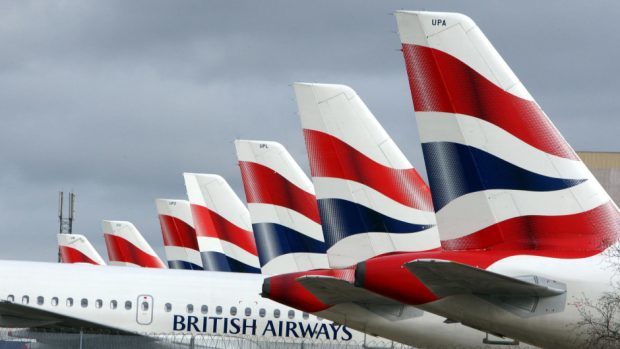The owner of British Airways has warned that ticket prices may rise – just as the UK flag carrier prepares to do away with free food and drink on its short-haul flights.
International Airlines Group (IAG) chief executive Willie Walsh said the company could have no option but to put prices up in order to offset the collapse in the pound.
He also revealed that industrial action and sterling’s weakness had dealt a £145million blow to IAG’s operating profits in the three months to the end of September.
The warning about higher prices is a blow for economy passengers, who were hoping for cheaper fares after BA ditches on-board freebies next year.
It is replacing free meals on flights of less than five hours, and joining low-cost rivals such as Ryanair and easyJet in charging for sandwiches, crisps and drinks.
Passengers in Club Europe – BA’s short-haul business class service – will continue to enjoy a complimentary menu, which is being improved and revamped.
IAG said third quarter operating profits before exceptional items came in shy of expectations, falling 3.6% to £1.08billion from £1.12billion a year ago.
Mr Walsh said: “While strong, these results were affected by a tough operating environment with a very significant negative currency impact.”
He added: “At current fuel prices and exchange rates, IAG expects its operating profit for 2016 to be around 2.5billion euros (£2.2 billion), and has seen no significant change in its short-term trading conditions.”
The group said it suffered “weak trading conditions” in June, both before and after the Brexit vote, with its premium cabins bearing the brunt of the slowdown.
However, it added it had not faced any “immediate regulatory impact” in the aftermath of the EU referendum.
IAG issued a profit warning after the referendum on June 23, causing its share price to tank 19%.
The group, which also owns the Aer Lingus and Iberia airlines, said total revenue before exceptional items slipped 4% to £5.81billion in the third quarter, from £6.06billion a year ago.
The firm said it had come under pressure in the nine months to September 30, with lower fuel prices only partially offsetting headwinds from Britain’s vote to leave the EU, a string of overseas terror attacks, air traffic control strikes and currency movements.
Sterling has fallen around 20% against the US dollar since the Brexit vote.
